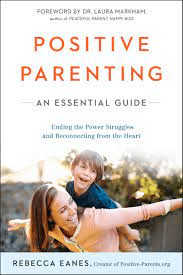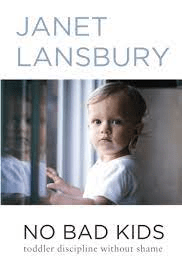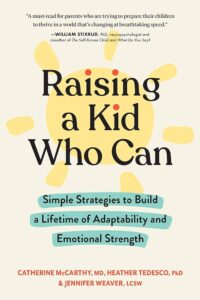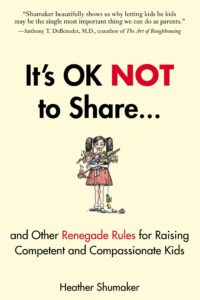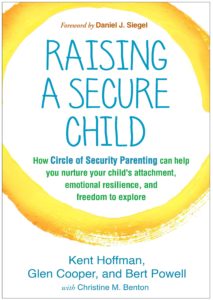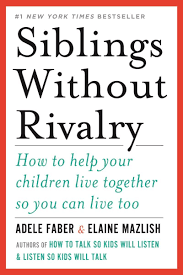Are you embarking on your positive parenting journey? I’ve put together a list of parenting books that have truly transformed the way I approach parenting. These books cover topics like child development, positive discipline, toddlerhood, mental health, and fostering resilience in children.
Whether you’re a new parent or simply looking to enhance your parenting skills, there’s something here for everyone.
Table of Contents
If you only have time for one book…
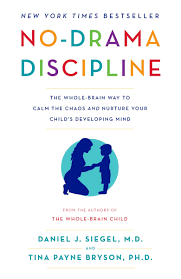
No Drama Discipline by Daniel. J. Siegel and Tina Payne Bryson
This book changed my life. I picked it up during one of the lowest points in my parenting journey, and it completely shifted my perspective on discipline.
Siegel and Bryson explain that discipline isn’t about control but about teaching children skills to handle challenging emotions and situations, both now and in the future.
One of the biggest takeaways is that children’s behaviours are a form of communication. Instead of reacting, we’re encouraged to connect with empathy and guide them calmly. The book offers brain science-backed strategies to nurture resilience, empathy, and problem-solving skills in children.
With actionable tips and simple comics to illustrate concepts, this book equips parents to create a calm, connected household. If you’re looking for one parenting book to read, this is it.
If you are new to Positive Parenting…
Positive Parenting by Rebecca Eanes
The idea of positive parenting can feel overwhelming, especially when we start reflecting on the things we wish we’d done differently. Rebecca Eanes’ book simplifies this approach, offering practical advice that feels natural and doable.
What really stood out to me is how she encourages parents to reflect on their own upbringing and how it influences their parenting style. The goal isn’t to be perfect but to create a connected family unit through intentional actions and open communication.
Rebecca also reminds us that change starts with ourselves. She offers fantastic tips on shifting negative thought patterns. One quote that stayed with me: “Stop your negative thought mid-way and replace it with a corrective one. Over time, this becomes your automatic response.”
This book also reframes how we see misbehaviour. When children act out, they’re signalling that something is wrong. Instead of reacting to the behaviour, we’re encouraged to look deeper and address the underlying need.
If you have a toddler…
No Bad Kids: Toddler Discipline without Shame by Janet Lansbury
This book is a comprehensive guide to navigating toddlerhood. Janet Lansbury, mentored by child specialist Magda Gerber (founder of RIE), emphasizes that babies are intuitive, communicative, and natural learners, deserving of respect.
Lansbury explains that while toddlers test boundaries, parents can set firm yet respectful limits to guide them. She challenges the use of consequences as “punishments” and provides alternative approaches for discipline.
Packed with relatable examples and actionable tips, this book is a must-read for anyone struggling to understand or communicate with their toddler.
If you hope to raise a resilient child…
Raising a Child Who Can by Dr Betty Lou Bettner and Dr Amy Lew
This book reminded me that small, intentional shifts in how I parent can have a huge impact on my kids’ confidence and ability to thrive.
The authors, Dr. Bettner and Dr. Lew, break it down into what they call the “Crucial C’s,” which are four things every child needs:
- Connect: Feeling secure and loved in their relationships.
- Capable: Believing they can handle challenges and learn from mistakes.
- Count: Knowing they contribute and make a difference.
- Courage: Having the confidence to take risks and bounce back from setbacks.
Reading this made me think about the little ways I can help my kids build these qualities every day. For instance, instead of stepping in to solve every problem, I’ve learnt to ask “What do you think we should do?” It’s amazing to see how proud they are when they come up with their own solutions.
If you’re looking for a roadmap to raise self-assured and resilient children, Raising a Child Who Can is an empowering guide.
If you want to raise kind kids…
It’s OK Not to Share: And Other Renegade Rules for Raising Competent and Compassionate Kids by Heather Shumaker
One of the standout ideas in the book redefines sharing—something we often view as a cornerstone of good behaviour. Shumaker flips the script on what “sharing” should look like between kids. Instead of forcing children to hand over a toy the moment another child asks, she suggests allowing kids to decide when they’re ready to give it up. The idea is that true sharing comes from a place of generosity, not obligation.
Instead of stepping in and mandating fairness, I learnt to trust the process and allow my kids to manage it themselves. And you know what? It’s been empowering for them—and a relief for me! They’ve started to learn patience and negotiation skills, and the toys get shared eventually, but in a way that feels right to both parties.
What I love about this book is that it doesn’t just challenge the status quo—it explains why these renegade rules, like redefining sharing, actually work better for kids in the long run. It’s taught me to step back, trust my kids more, and focus on raising humans who are not just obedient but empathetic, confident, and compassionate.
If you’re concerned about your child’s mental health…
The Anxious Generation: How the Modern World is Making Children More Fragile and What We Can Do About It by Jonathan Haidt
This book doesn’t just point fingers at social media or helicopter parenting—it goes deeper, exploring how shifts in culture, education, and technology have reshaped childhood and impacted kids’ mental health.
Jonathan Haidt sheds light on how constant online exposure, overprotective parenting, and relentless comparison eat away at children’s confidence and emotional well-being. One point that hit home for me was how overprotection and overscheduling, even when done with good intentions, can prevent kids from learning how to bounce back from challenges. When we shield them too much, they miss out on developing the emotional resilience they’ll need for life.
The book also tackles the overwhelming role of social media, especially for teenagers, showing how it amplifies perfectionism, comparison, and FOMO. What I appreciated most were Haidt’s practical ideas for fostering resilience: giving kids room to solve problems on their own, encouraging unstructured play, and modeling how to handle setbacks calmly.
For me, the biggest takeaway was learning to let go even more. By stepping back and letting my kids experience failure, I’m actually giving them a chance to grow stronger. This book is a must-read for any parent trying to navigate today’s challenges and help their children thrive emotionally.
If you want to foster secure attachment…
Raising a Secure Child by Kent Hoffman, Glen Cooper and Bert Powell
One powerful example the authors share is about a four-year-old at a playground. Initially, the child might explore independently, but after a while, they’ll glance back at their parent for reassurance. This might be a look that says, “Did you see my sandcastle?” or “Come and enjoy this with me!”
Similarly, on a first day at school, a child may need their parent to be a “secure base” until they feel safe enough to explore their new environment.
This book taught me to be present in the moment and to meet my child’s emotional needs, no matter where they are on the Circle of Security. It’s an essential read for cultivating a sense of safety and resilience in children.
If you want to help your child thrive…
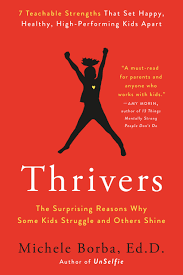
Thrivers by Michele Borba
This book dives into the challenges of raising children in today’s high-pressure, achievement-focused world. While many kids excel academically, they’re also at greater risk of anxiety and depression. Michele Borba highlights the key difference between those who struggle and those who thrive: it’s not grades but seven character traits – self-confidence, empathy, self-control, integrity, curiosity, perseverance, and optimism.
What I love about this book are the practical strategies Borba provides, like teaching self-control with games such as Freeze or setting timers, and using simple scripts to build empathy. For example, asking, “How would you feel if the roles were reversed?” or retelling stories from another character’s perspective.
The book also includes age-specific tips, making it easy to apply the strategies at every stage, from toddlerhood to the teenage years. It’s my go-to resource for instilling strong values and fostering positive qualities in my children.
If you want to raise unselfish kids…
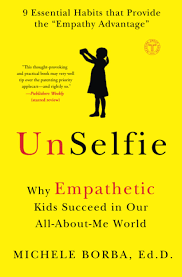
UnSelfie: Why Empathetic Kids Succeed in Our All-About-Me World by Michele Borba
Empathy is one of the most important values I want to instill in my kids. It’s reassuring to learn that the part of the brain responsible for empathy only starts developing around age three, so our little ones are just beginning to grasp this skill.
In UnSelfie, Michele Borba outlines a step-by-step approach to nurture empathy: first developing it, then practising it, and finally living it. The “What Science Says” and “age-by-age” strategies are incredibly practical and easy to implement.
One tip I’ve found especially helpful is teaching my kids how to disagree respectfully. Suggested scripts like, “You don’t have to agree… Let’s hear your idea now…” have transformed how my children handle disagreements. By practising this regularly, they’re learning to see things from others’ perspectives.
This book is packed with actionable insights and is a must-read for raising kind, thoughtful, and empathetic kids.
If you have multiple kids…
Siblings Without Rivalry by Adele Faber and Elaine Mazlish
This engaging book combines the authors’ personal experiences, parent group insights, and practical tips to help families manage sibling relationships. Each chapter covers a specific topic and includes:
- Illustrated examples of “what we say” vs. “what we can say instead.”
- Success stories from parents who’ve tried the techniques.
- A quick summary and Q&A for extra clarity.
A key takeaway is that siblings need relationship skills, just like they need practice to read or play sports. Parents can step in when necessary but should empower kids to resolve conflicts independently.
Ideas I loved:
- Use simple signs or drawings as reminders for family rules.
- Assign mood “colors” to help family members understand and respond better to each other.
- Spend one-on-one time with each child to discuss their feelings about siblings.
This book offers lasting strategies to foster healthy sibling dynamics and strong family connections.

